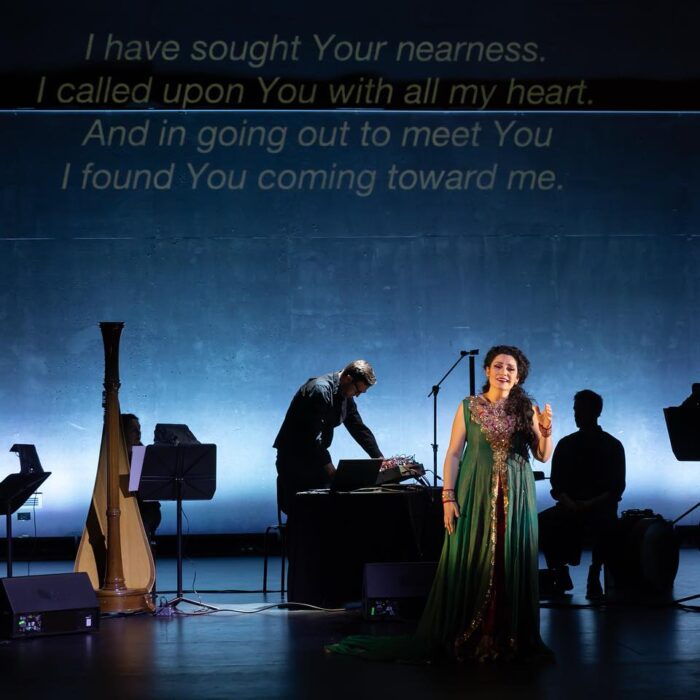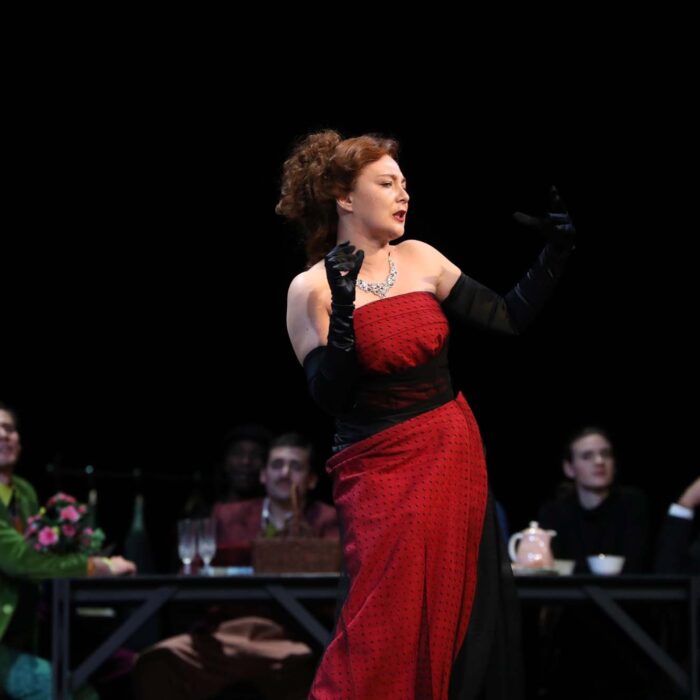
7 Operas That Maria Callas Rescued From Obscurity
By David SalazarMaria Callas is arguably THE greatest opera star in history.
Born on Dec. 2, 1923, the Greek singer (who was born in New York City) would become a turning point in the history of the art form, with some going so far as to claim there was a period “Before Callas” and one “After Callas.” Leonard Bernstein called her “The Bible of Opera.” Obviously transcendent figures cause great polarization and Callas was no exception, her personality, and demeanor often at the center of controversy. She was constantly compared to other great artists of the era and many of her critics often attack the quality of her voice, noting that other artists possess greater beauty.
But there is no denying her artistry and the profound effect she has had to this day on the opera world. She revolutionized the way an opera singer was to appear onstage, changing her entire figure from rotund to svelte simply to be more believable onstage. Her characterization of her characters went beyond simply the vocal, but also the physical. Today’s opera world, with its emphasis on dramatic realism, would not exist with Callas. Or it might not have arrived just yet without her.
Also crucial to Callas’ legacy is her ability to resurrect operas and establish them firmly in the repertoire. Many operas are at the forefront of the repertoire because of her efforts while others are starting to get some attention thanks to the work she did in her heyday. Here are the operas that Callas brought back from obscurity.
Alceste
Best known for her romantic interpretations, Callas had a profound impact on bringing some of the 18th century works to light (though she had no appetite for Mozart). She was a particular champion of Gluck’s work, and her “Alceste” from 1954 gave the opera new life in the 20th century. Other sopranos were performing the work around Callas’ time, but her interpretation is the one that, to this day, stands tall above the others.
Anna Bolena
Nowadays “Anna Bolena” is nearly a repertory staple with many great sopranos, including Anna Netrebko and Sondra Radvanovsky, championing the work at the greatest theaters. But that wasn’t the case prior to Callas. The opera did have some revivals in the Post-World War II era, but Callas appearance in the role in 1957 proved historic, bringing its dramatic potential to the forefront. Thereafter one great diva after another started showcasing her talents in the role, including Leyla Gencer, Montserrat Caballé, Renata Scotto, and Beverly Sills, among many others.
Armida
The famed Rossini work still doesn’t have a set place in the modern repertoire, but it has garnered the interest of some noted singers today, most famously Renée Fleming, who shepherded the Met Opera’s premiere of “Armida” only a few years back. But it was Callas who made the opera relevant altogether, performing it for the first time in 1952 in Florence. Her recording of the work remains, to this day, the most notable point of reference for this Rossini piece.
Bellini’s Works – I Puritani, La Sonnambula, Il Pirata
Bellini’s operas didn’t really get much respect in the early part of the 20th century with revivals less interested in the dramatic possibilities of the works. In fact, such operas as “La Sonnambula” and “I Puritani” often got scarce performances throughout the early part of the 1900s in versions that were described as more the baroque style, with vocal parts featuring extensive ornamentation that the composer never intended.
But Callas came along and altered all that, putting on famous revivals of “La Sonnambula” in 1955 at La Scala and “I Puritani” in Chicago that same year. It was after she brought her dramatic realism to the roles that the operas suddenly became fixtures around the world, enduring to this day as crucial parts of the repertoire.
The same cannot be said for the other Bellini opera that Callas brought back to life – “Il Pirata.” The diva famously sang the role in 1958 for the first time at La Scala alongside Franco Corelli. It was one of the final roles of her career and she would also perform it in concert performances at Carnegie Hall thereafter. That the role has gotten revivals here and there definitely owes debt to Callas’ ability to showcase the dramatic value of the early Bellini work.
Medea
Another 18th century work, “Medea” still belongs to Callas. Her 1953 revival is one of the most iconic in opera history as the soprano learned the role in one week. The following year, she was brought to La Scala and performed the role with Bernstein in the pit. She would continue to showcase her talents in the opera around another 30 times throughout her career in Dallas, London, and even Italy. She even recorded a film version of the work. The opera has yet to become a fixture of the repertoire, but we probably would have little to no interest in it if not for Callas’ superlative interpretation.
Agree with our list? What other operas do you think the soprano rescued from obscurity? We invite you to tell us in the comments below.


